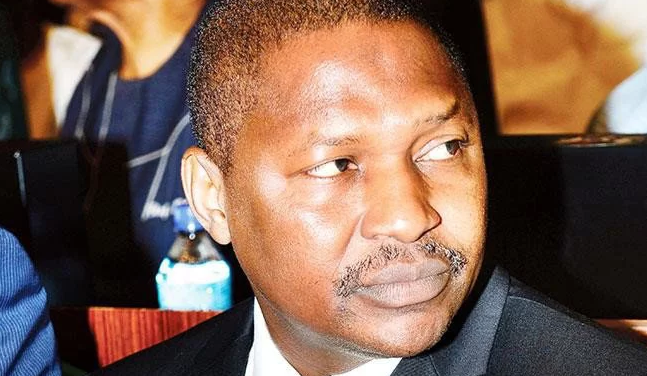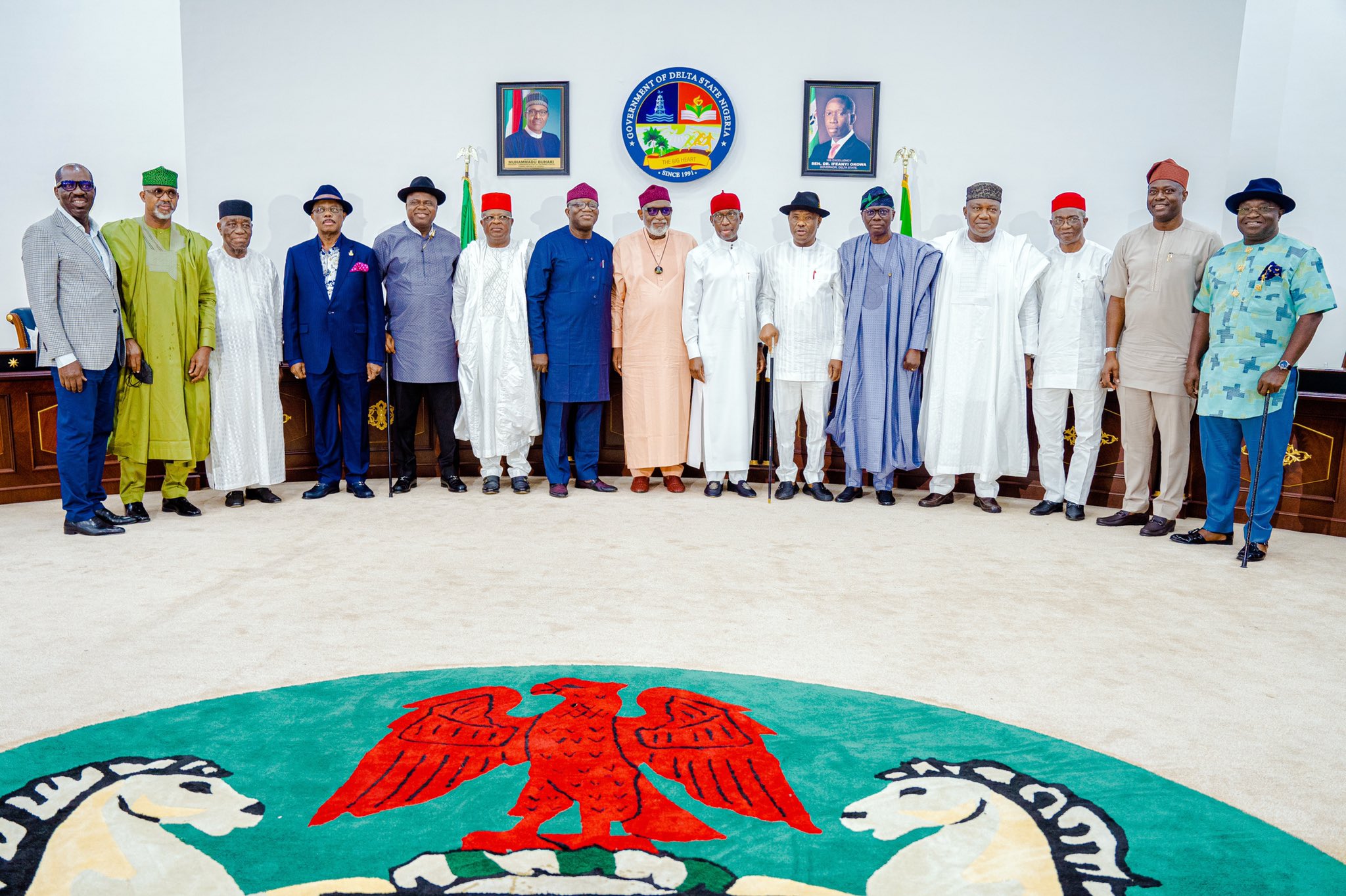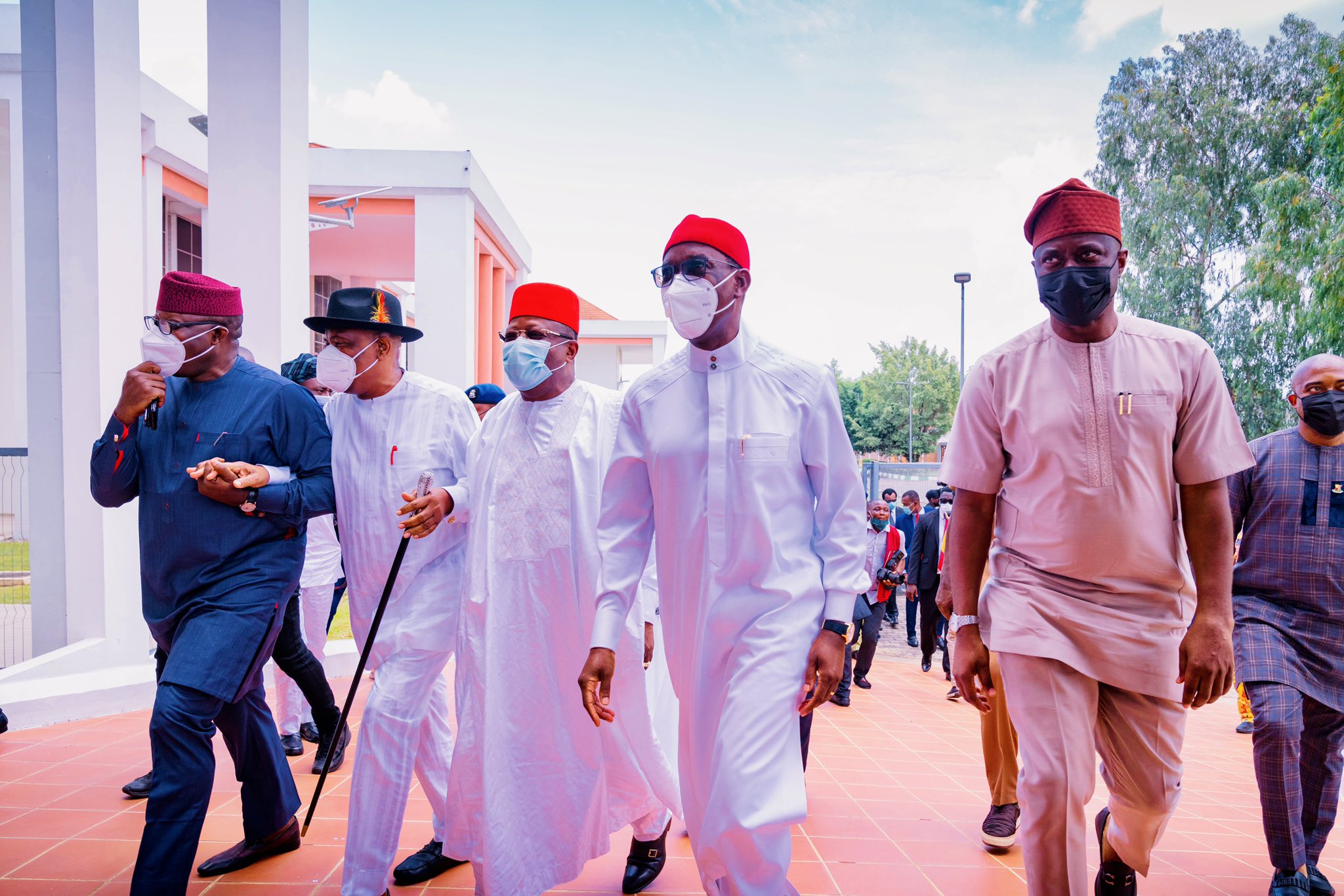Perhaps if Alois Hitler, father of a man who would later be the albatross of the whole human race, had performed a ritual which the Yoruba call the Ẹsẹ̀ntáyé – a traditional earthly journey investigation – on his son Adolf, six million Jews who were exterminated in excruciating circumstances decades later by same man who grew to become the most notorious troubler of the world, would probably have had their lives spared. Alois’ Austrian-German society of the 19th century ostensibly didn’t believe in Ẹsẹ̀ntáyé and would have thought it to be craps.
Not doing this, itself to be, for the world, the proverbial offspring of the cobra that is always the harbinger of its death. Adolf Hitler later grew up to become one of the most infernal dictators in human history. With the benefit of hindsight, a spiritual divination of his dastardly mission on earth at his birth on April 20, 1889 would have spared the world of Hitler’s sadism.
With the Ẹsẹ̀ntáyé – literally meaning, touching the earth with the feet – traditional African Yoruba society sought not to be ambushed by an insidious human destiny that could bring society or an individual to ruins. Their belief is reinforced by a worldview that each human being is born to fulfill a purpose or destiny in life, positive or negative. They held that society isn’t only complicit in the way an individual turns later in life, it could also be a bearer of the pall if the individual’s later life turns destructive. To guard against this, the Yoruba society attempted to seek insight into the tomorrow of its children so that it could help redirect the sail of a disaster-prone destiny or help nourish any destiny that was on the right course.
So on the third day after the birth of a child, its parents, grandparents and the Ifa priest, are gathered in a short restricted ceremony to divine what purpose the child had come to fulfill on earth. Chants, rituals and sacrifices were made to the gods and the particular Ifa corpus’ message which reveals the child’s name, destiny and the dos and don’ts of his life, is administered. This was the same ritual administered in Professor Ola Rotimi’s The gods are not to blame on baby Odewale, given birth to by King Adetusa and Queen Ojuola in the land of Kutuje. The Ifa priest, Baba Fakunle, on divining the baby’s Ẹsẹ̀ntáyé, proclaimed that “this child would kill his father and marry his own mother!” It came to pass.
Advertisement
Like the Austrian-German society at Hitler’s birth, Nasir Ahmad El-Rufai’s Daudawa Fulani family, at his birth on February 16, 1960, probably also considered the Ẹsẹ̀ntáyé rituals as some heathen crap. But when I first met him for the very first time in Lagos, sometime in the year 2000, my mind did a psychological and psychoanalytic Ẹsẹ̀ntáyé on
It was at the Akodo Resort on the Lagos’ Lekki Peninsula and the Bureau of Public Enterprises (BPE) which the young El-Rufai headed as Director General, had invited journalists to interrogate and appreciate what the newly established BPE was about. At the opening session addressed by the DG, he swept everyone off their feet with his suavity and depth. However, on multi-billion Naira investments of the Nigerian state that had begun to be sold off, El-Rufai spoke like a cold-hearted mortician who had come to embalm the dead. My picture of him, aftermath that encounter, was a man totally drained of blood and human feelings. I left Akodo persuaded that young Nasir was a budding Nigerian German Chancellor and Fuhrer, Adolf reincarnate. So when, years after, he began to exhibit that cold-heartedness, first as Minister of the FCT during which he bulldozed billions of Naira-worth properties, in the name of the law, as if man was made for law and not vice versa; and later, as the Kaduna governor which he administered both as a suzerain and it, his fiefdom, I gloated at having reincarnated as Baba Fakunle.
El-Rufai is brilliant and most likely very accountable in government. A friend who worked with an NGO told me that of all states in Nigeria, his Kaduna is like a Mecca for foreign development partners because his governance of the state approximates and manifests key indices of performance and accountability. These partners underscore those as the KPIs associated with a developing country. That is why, if infrastructure and development were the gauge of governmental success, it is not likely that any state in Nigeria will surpass the miniature-statured Nasir’s Kaduna, just like Adolf conquered the whole world for his Aryan race. However, when it comes to the human elements of governance, the blood touch, El-Rufai scores less than zero. His lack of regards for the other person is huge and his magisterial belief in himself, at the detriment of others’, verges on the arrogant.
Advertisement
When Nasir speaks, he waxes epigrammatic and profound. He does not engage in herd mentality and does not care whose ox gets gored on account of his decision to paddle his canoe alone. For him, a middle of the road in any equation is effeminate. Some people claim that El-Rufai seeks superlatives in all he does due to his scant physical quantity. When Sheik Gumi became the new face of negotiation with bloodsucking bandits in the North and governors were in a stampede to touch the nape of his compromised robe so that the blood flow in their land would cease, due to his atypical reasoning, the Kaduna chief executive told Gumi and all others to go jump inside the river. Bandits should be serially killed and not negotiated with, he proclaimed.
Most certainly as retaliation for his verbal artillery-shelling of their base, kidnappers convoked on his Kaduna for a vengeful retaliation. A few weeks ago, he was asked to react to the killing of three of the kidnapped students of Greenfield University and what further steps his government would take to rescue them. El-Rufai, who had vowed that while other governors were paying multi-million Naira ransom, Kaduna wouldn’t pay a dime, said his government was in amity with the military to flush bandits out and rescue the remaining 17 students. “I was assured by the Air Force and Army that they know where the students are and have encircled them. We are going to attack them. We will lose a few students but we will attack the bandits and recover some,” he had said, (emphasis mine).
The two phrases in the above statement, “lose a few students” and “recover some,” though very honest reality of such military engagements, show who Nasir really is. He does not dress shibboleths that he disbelieves in with any worthy apparel. The question people ask is, those “few students who would be lost,” are they chickens or goats? If he was their parent, would he speak as cold-mindedly as this? Those who begrudge Nasir’s cold analyses and submissions lose an essential element of his persona.
So when he sacked 5,000 civil servants on a very realistic, pure economic calculation that Kaduna could not continue to bear the burden of a workforce that constitutes just a few percent of its citizens and residents, proceeding last week to unilaterally and magisterially declare the NLC President, Ayuba Philibus Wabba wanted, he was merely manifesting a frozen heart whose arteries are impermeable to human feeling. To say the truth however, Kaduna had always been that unlucky with its governors. In October, 1997, as Kaduna State military governor under General Sani Abacha, current Customs Controller, Hameed Ali, sacked about 30,000 striking civil servants. He then proceeded to detain 18 local government chairmen and arrested a journalist who reported his Hitleric gangsterism. The poor folk was severely beaten by Ali’s goons and tortured at the Government House.
Advertisement
In that same last week, aside the troublous irritancy of El-Rufai, Nigeria was to contend with another infected mind that oozes putrid odour. Abubakar Malami, Attorney General of the Federation and Minister of Justice, starred shamelessly in that drama. While impugning the decision to ban open grazing by southern governors made in Asaba, Delta State, Malami last week said on a Channels Television programme that the governors’ call was unconstitutional as it violated and denies the rights of Hausa/Fulani herders. Then he made an asinine comparison, for which Nigerians have hoisted him on a well deserved crucifix ever since. “It is as good as saying, perhaps, maybe, the northern governors coming together to say they prohibit spare parts trading in the north,” he had said.
Malami has since got a quantum of deserved ripostes from across Nigeria since he made that mental slip, parceled as verbal shelling of his base. He does not need more from me. The most heroic response he got came from Oluwarotimi Akeredolu, the governor of Ondo State. What made Akeredolu’s response heroic was that it was against-method, something in the mould of philosopher Paul Feyerabend’s argument while canvassing the scientific method of examination of Karl Popper. Like Feyerabend’s, Akeredolu’s intervention was unusual because it upset political mores and governmental behavior that had been the norm in Nigeria overtime. It was sparsely exampled and very unhypocritical. The norm was for governors to nest their views in support of status-quo and hide behind a finger. This they did in the name of political correctness and kowtowing before the almighty Federal Government. Akeredolu chose to repudiate all that and stood behind his people. History will record appropriately that when Nigerian high places became jam-packed with political vultures and fawners, despite the fact that the land is filled with blood of innocent citizens spilled by invading Fulani herdsmen, a governor chose to bond with his people, no matter the systemic frown at it.
As if the menace of El-Rufai and Malami was not enough for a week filled with dispiriting views from Nigerian high places, the Governor of Cross River State, Ben Ayade chose to pollute the already troubled waters. This is not just because he decided to tread the shameless, self-serving path that has become famous with Nigerian politicians. The fad among them is to breakfast with one political party at dawn, have lunch with another by mid-day and dine with yet another by sunset. What however rankles with Ayade is his deployment of the usual brainless justification of such political act, in the service of his political adultery. Hear him: He left the Peoples Democratic Party (PDP) for the ruling All Progressives Congress (APC) so as to buoy President Muhammadu Buhari’s “commitment to this country, his nationalistic disposition and all the efforts he has made to bring Nigeria to where we are today, it’s obvious that we should join hands with him to build a Nigeria that we can be proud of.”
From his first word to the last, you could see that Ayade, a former lecturer in the Department of Microbiology, University of Ibadan, merely needed a nationalistic hyperbole to dress his despicable, maggots-oozing sore. This, he did excellently. When politicians, especially governors, take this kind of unpopular, anti-people detour, two issues are likely to be responsible. First is the possibility that the federal eye had sighted cockroaches brimming in their wardrobes and wanted to make an example of them. A party jump is thus quickly resorted to as self bailout. Second is the likelihood that some political scammers had succeeded in fooling the governor that he had been found worthy to step into Buhari’s shoes in 2023. Like they did to Ebonyi’s Dave Umahi.
Advertisement
If not, why would Ayade assault Nigerians with those less-than-sensible reasons for his political adultery? What commitment to country, what nationalism, what effort has Buhari made towards sustenance of Nigeria that needed Ayade’s dalliance? When former colleagues of Ayade’s in UI said they were not surprised at his latter serpentine manifestations in political office as his Ẹsẹ̀ntáyé – judging by his actions while he was a teacher in the university – showed such tendencies, I promptly rested my case.
If you realize that the El-Rufais, Malamis and Ayades constitute the bulk of the cold-blooded sharks that populate the Nigerian political and governmental rivers, why then do we still marvel that Nigeria is neither progressing nor standing still, but regressing fast into unmitigated anomie?
Advertisement
Attahiru: Death, thou too shall die!
The death last Friday evening of Nigeria’s Chief of Army Staff, Lt. General Ibrahim Attahiru and ten others, in an ill-fated flight in Kaduna, Kaduna State has once again thrown Nigeria into mourning. Though death has become the usual meal on Nigeria’s menu, General Attahiru’s death, as well as those on his entourage, shocked Nigerians to the marrows. The deaths of these soldiers seem to be speaking to Nigerians in riddles. However, like every human being, the moment we leave the cemetery, the life that we felt was not worth living upon sighting the dead lying still, is suddenly mollified and we continue to assume our individual mortality.
Advertisement
As the holy write counseled, moments like this present eternal lessons of our human existence and should be more desired. When we see the dead lying inside their lonely coffin rest homes, we should substitute ourselves for them. In other words, the question to ask is, what if I was the one inside that coffin? Most of the atrocities in high and low places are committed because we assume our immortality and magisterially divine that our own death is farther down the alley. “It will not happen to me in Jesus name” or “May Allah forbid!” are the words that come out of our subconscious whenever we see our friends, colleagues and fellow travelers on life’s lonely road being lowered into the sepulcher. But why should Allah, Jesus forbid a process that is the culmination of our humanity?
Except for human beings whose bodies are dead to death; who have witnessed enough dead in a lifetime and almost see themselves as dead, a death beside us should awake us to the need to live right and prepare for the last day. Life is too worthless and unworthy of the glories and beatification that we unnecessarily accord it. While I agree that life will be meaningless without all those fleeting icings that we mistakenly take for life’s cake itself, we should remember that, like General Attahiru and our brothers who paid the supreme price on Friday, we will die our own deaths at the intersection when the final whistle is blown.
Advertisement
I extend my condolences to the families of the bereaved.
Views expressed by contributors are strictly personal and not of TheCable.
Add a comment







